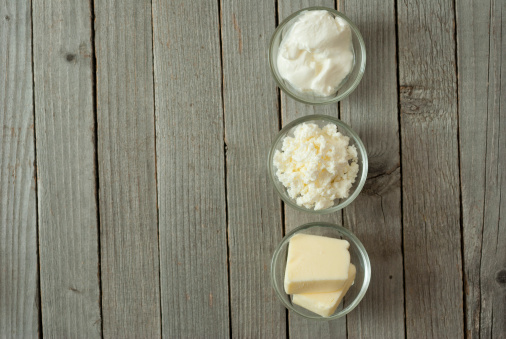The gut is a complex microworld in which up to 70% of our immune systems are said to be supported. An unhealthy gut can cause health concerns ranging from cancer to anxiety and everything in between. This strong relationship between gut health and total health makes maintaining a healthy gut essential, not just for individuals with digestive problems but for everyone.
So, where do fermented foods come in?
Whilst they may sound unappealing, the science behind fermented foods is pretty solid. Humans have been eating bacteria containing foods for hundreds of thousands of years now and it’s only in the last century or so that we’ve become so sterile. Rotting fruit and meats were considered average daily fare in pre-historic times and meat storage hasn’t always involved the handy dandy fridge or freezer. Interestingly, eating in this manner actually helped our guts to fight off some of the threats of infectious disease long before the wonders of modern medicine.
Fermented foods, by modern standards, are also more common than you think: Wines; Beers; Sauerkraut; Crème fraiche and Kombucha are all fermented.
The Benefits
What could fermented foods do for you? The process of fermentation prevents decay and enhances the nutrient content of the food and helps to introduce friendly bacteria into the body. The advantages of this are endless. Beyond enhancing our immune systems, introducing fermented foods into the human diet has been shown to improve GERD and Gastritis symptoms, reduce Autism symptoms and improve digestive function. Other benefits include weight loss, detoxing and protection against several digestive cancers, heart disease and cavities in children. Fermented dairy products can often be suitable for individuals who are intolerant to other forms of dairy.
There are lots of great reasons to try fermented foods and it’s a process that can easily be done in your own home. Here, we look at 5 of the easiest fermented foods for you and your family:
1. SAUERKRAUT A simple German classic; all you need is cabbage, salt and a glass container! Weigh your cabbage, slice thinly and add 9 tablespoons of salt per 15lbs of cabbage. The cabbage should wilt and begin to produce liquid, mix it around and make sure the cabbage stays below the liquid. Cover and leave to ferment for 2-6 weeks out of direct sunlight on a kitchen surface. Once your kraut is ready, you can store it for up to 6 whole months in the fridge!
2. CREME FRAICHE You can buy this in most supermarkets, which is very handy! You can make your own by heating up 2 tablespoons of buttermilk to 2 cups of heavy cream and leaving to stand in a partially covered glass jar for up to 24 hours, or whenever it has thickened. Simple and will last for up to 2 weeks in your fridge.
3. CULTURED BUTTER Taking your crème fraiche and mixing it up in a food processor, or with a whisk if you’re a patient soul, until the buttermilk separates from the butter will produce some of the most delicious, fragrant and super healthy butter you have ever tasted.
4. YOGHURT Making your own yoghurt is simple – you will need organic whole milk and a little organic probiotic natural yoghurt. Heat 4 cups of milk in a pan, being careful not to let it boil, for around 5 minutes. Add 2 tablespoons of yoghurt to the bottom of a jar and slowly add the milk, mixing together, once it has cooled. Fasten the lid and leave on the windowsill, on a sunny day, until ripe.
5. KOMBUCHA This is a little more complicated but so very worth it! Many people believe Kombucha cures a wide variety of minor ailments, and it sure is tasty. Made with sugar and black tea, Kombucha is a sweet and slightly fizzy drink with a tiny alcohol content (possibly not one for the kiddies). See here for our favourite guide to Kombucha and how to make it.
BOOKS WORTH READING
The Art of Fermentation: An In-depth Exploration of Essential Concepts and Processes from Around the World Sandor Ellix Katz
Wild Fermentation: The Flavor, Nutrition, and Craft of Live-Culture FoodsReclaiming Domesticity from a Consumer Culture Sally Fallon
Nourishing Traditions: The Cookbook that Challenges Politically Correct Nutrition and the Diet Dictocrats Sally Fallon
The Body Ecology Diet Recovering Your Health and Rebuilding Your Immunity Donna Gates
Real Food Fermentation: Preserving Whole Fresh Food with Live Cultures in Your Home Kitchen Alex Lewin







